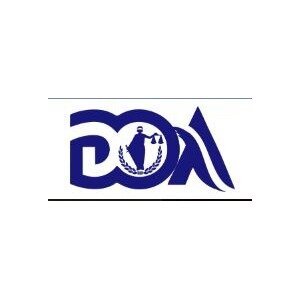Best Sexual Harassment Lawyers in Ikoyi
Share your needs with us, get contacted by law firms.
Free. Takes 2 min.
List of the best lawyers in Ikoyi, Nigeria
About Sexual Harassment Law in Ikoyi, Nigeria
Sexual harassment is a pervasive issue across the globe, including in Ikoyi, Nigeria. The Nigerian legal framework, while providing a basis to combat this violation, is continuously evolving to create a more comprehensive protection against sexual harassment. In addition to specific workplace policies that many organizations may hold, Nigeria's national laws provide victims with a starting point for seeking justice. Sources of law include the Constitution of the Federal Republic of Nigeria, the Violence Against Persons (Prohibition) Act, and the Criminal Code, which applies in southern Nigeria, including Lagos State where Ikoyi is situated.
Why You May Need a Lawyer
Individuals may need legal help in the case of sexual harassment for a variety of reasons. These can range from requiring assistance to understand their rights, to needing representation in legal proceedings. Victims often require guidance on how to properly document incidents, navigate the complexities of employment law, file complaints with relevant authorities, or pursue civil litigation to seek compensation. A lawyer specialized in this area can offer confidentiality, represent your interests, and improve the chance of successfully holding perpetrators accountable.
Local Laws Overview
In Ikoyi, the laws surrounding sexual harassment can be found within national legislation and local guidelines for workplaces. One key aspect of local laws to consider is that they often define sexual harassment broadly, potentially encompassing a range of unwanted behaviors. It is important to note that while criminal actions can be prosecuted, civil remedies are also available which might include compensation for damages. In addition to federal laws, Lagos State has its own legal provisions which advocate for the prevention of harassment, and support for victims.
Frequently Asked Questions
What constitutes sexual harassment under Nigerian law?
Sexual harassment in Nigeria is often defined as an unwelcome sexual advance, request for sexual favors, or other verbal or physical conduct of a sexual nature that can affect a person’s employment, interfere with work performance, or create an intimidating, hostile, or offensive environment.
Can I file a sexual harassment claim against someone at my workplace?
Yes, if you are experiencing sexual harassment at your workplace, you can file a claim. It is advisable to consult with a lawyer to ensure that proper procedures are followed, and your rights are adequately represented.
Is there a statute of limitations for sexual harassment claims in Nigeria?
Yes, there are statutes of limitations for filing sexual harassment claims, which a lawyer can explain based on the specifics of your situation as they vary depending on the nature of the claim and the legal remedy sought.
Do I need evidence to prove sexual harassment?
Evidence is crucial in a sexual harassment case. It can include testimonies, correspondence, eyewitness accounts, and any form of recording that captures the harassment.
What are the possible outcomes of a successful sexual harassment claim?
Outcomes can include disciplinary action against the perpetrator, compensation for the victim, or both. Depending on the severity, it may also result in criminal charges.
Are there any government agencies in Lagos State that handle sexual harassment complaints?
Yes, government agencies such as the Lagos State Domestic and Sexual Violence Response Team (DSVRT) are in place to handle such complaints. Additionally, the National Human Rights Commission (NHRC) can be approached for these matters.
Can a lawyer help me if I am accused of sexual harassment?
Yes, it is important for anyone accused of sexual harassment to seek legal counsel to ensure that their rights are protected and to navigate the legal process that follows such an accusation.
What should I do if I witness sexual harassment?
If you witness sexual harassment, it is important to report the incident to the appropriate authority, such as human resources in a workplace setting, or contact the police if it is outside of the workplace. A statement as a witness may also be needed at some point.
Are men protected under sexual harassment laws in Nigeria?
Yes, both men and women are protected under sexual harassment laws in Nigeria.
Can sexual harassment occur outside of the workplace?
Sexual harassment can occur in any environment, not just the workplace. This can include schools, public spaces, or even online.
Additional Resources
Victims of sexual harassment in Ikoyi can turn to a number of resources for help. These include the Lagos State Domestic and Sexual Violence Response Team (DSVRT), the National Human Rights Commission (NHRC), and various NGOs dedicated to combating sexual and gender-based violence. Additionally, legal aid services and advocacy groups may provide further support and guidance.
Next Steps
If you need legal assistance regarding sexual harassment in Ikoyi, the first step is to consult with a legal professional who specializes in this field. Gather any evidence that you have pertaining to the incident(s) and reach out to a reputable lawyer or legal services organization. They can advice you on your rights, the merits of your case, and the best approach to seeking justice and protection under Nigerian law.
Lawzana helps you find the best lawyers and law firms in Ikoyi through a curated and pre-screened list of qualified legal professionals. Our platform offers rankings and detailed profiles of attorneys and law firms, allowing you to compare based on practice areas, including Sexual Harassment, experience, and client feedback.
Each profile includes a description of the firm's areas of practice, client reviews, team members and partners, year of establishment, spoken languages, office locations, contact information, social media presence, and any published articles or resources. Most firms on our platform speak English and are experienced in both local and international legal matters.
Get a quote from top-rated law firms in Ikoyi, Nigeria — quickly, securely, and without unnecessary hassle.
Disclaimer:
The information provided on this page is for general informational purposes only and does not constitute legal advice. While we strive to ensure the accuracy and relevance of the content, legal information may change over time, and interpretations of the law can vary. You should always consult with a qualified legal professional for advice specific to your situation.
We disclaim all liability for actions taken or not taken based on the content of this page. If you believe any information is incorrect or outdated, please contact us, and we will review and update it where appropriate.









